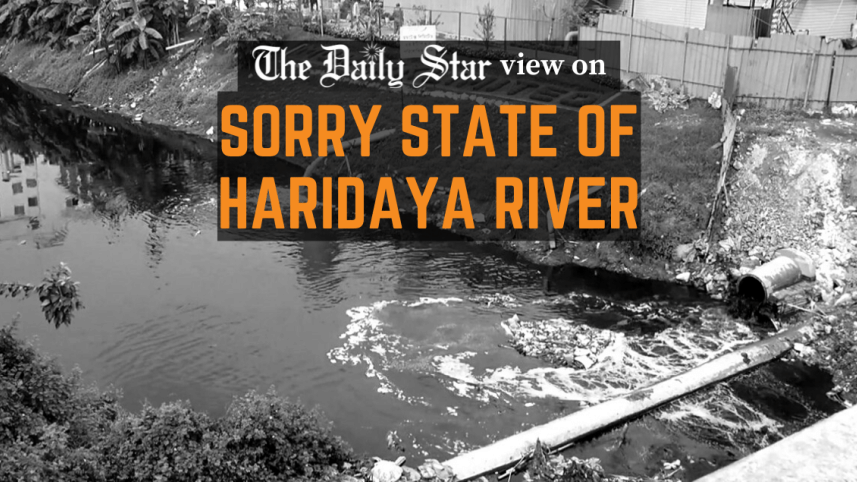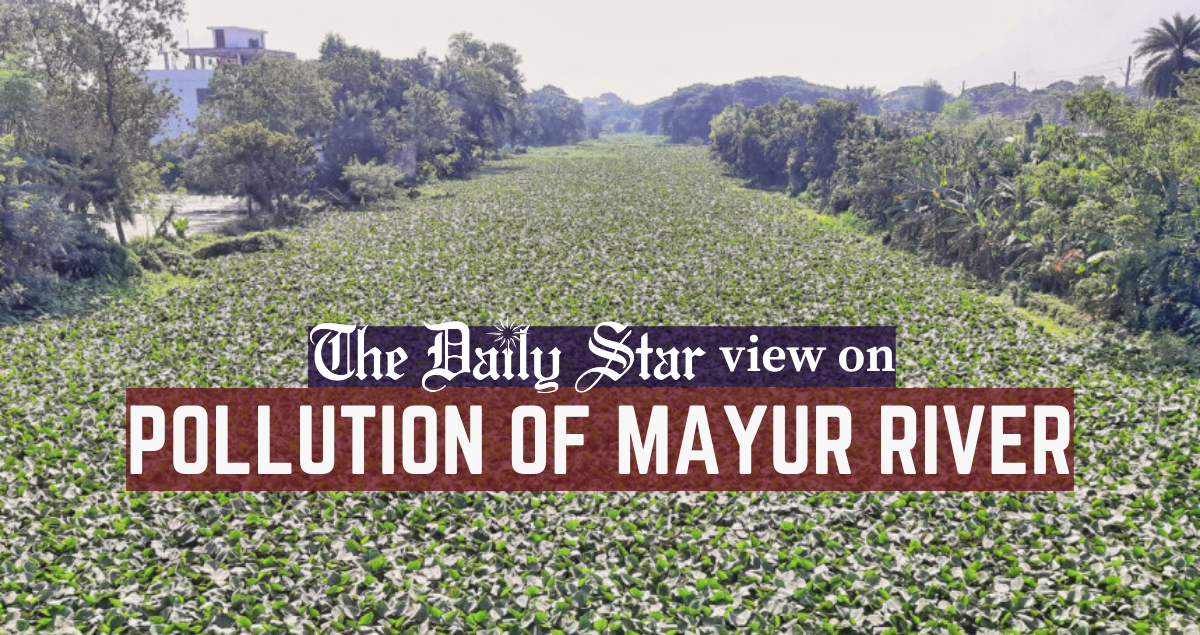Another river doomed to go extinct

One of the biggest tragedies of Bangladesh is that despite being known for being a riverine country blessed with rich, fertile land, we have been actively killing our rivers one by one. We have laws to protect our rivers, court directives elevating their status as "living entities", a National River Conservation Commission (NRCC) dedicated to their protection, and not to mention government projects to revive dead or dying rivers. Yet, nothing seems to be working. Almost every day, we read about some version of a river-killing exercise somewhere.
Yesterday, this paper reported the impending demise of the Haridaya River in Narsingdi, a 38-kilometre-long waterbody once home to many species of fish. The river has now been turned into a narrow canal thanks to encroachment and pollution. Greed, apathy and a total lack of regard for life-sustaining rivers have again struck down the life of another precious river.
Reportedly, untreated waste from factories, kitchen markets and households continue to pour into the Haridaya. Meanwhile, several hundred structures have been built right beside it. Efforts by the Water Development Board (WDB) to restore its navigability in 2018 through excavation have failed because no steps were taken to make sure people would stop dumping waste into the river. The 2,000 shops situated along the riverbank happily continue dumping tonnes of waste along with other polluters.
The question that arises, after every one of these river-killing cases, is: who is responsible for all this? Is it the local administration, in particular the municipal corporation, in front of whom these structures have been built and the waste dumped? Is it the WDB that is responsible for maintenance and restoration of the river? Is the NRCC that has been tasked to take action against illegal occupiers but not given enough resources or power to do its job? Is it the Department of Environment (DoE) that is supposed to take action against polluters?
The logical answer would be all of them. But far from coordinating to do their job, everyone blames everyone else. The president of Narsingdi Bazar Traders Association blames the municipal authorities, which blame the DoE, which in turn blames the municipal authorities, and so on. Amid the confusion and inaction, citizens, businesses and even government offices are encroaching parts of the river or dumping their waste into it.
The importance of coordinated and collective action cannot be stressed enough. Every stakeholder must take responsibility. Laws that prohibit structures from being built along riverbanks have to be enforced, and encroachers permanently evicted. There has to be an efficient, sustainable waste disposal system that the local administration will implement, with the help of the local people. And government bodies such as the DoE, WDB and NRCC have to make sure that their efforts and directives are followed through. Only a sincere, unified effort can save our rivers.
 For all latest news, follow The Daily Star's Google News channel.
For all latest news, follow The Daily Star's Google News channel. 
Comments